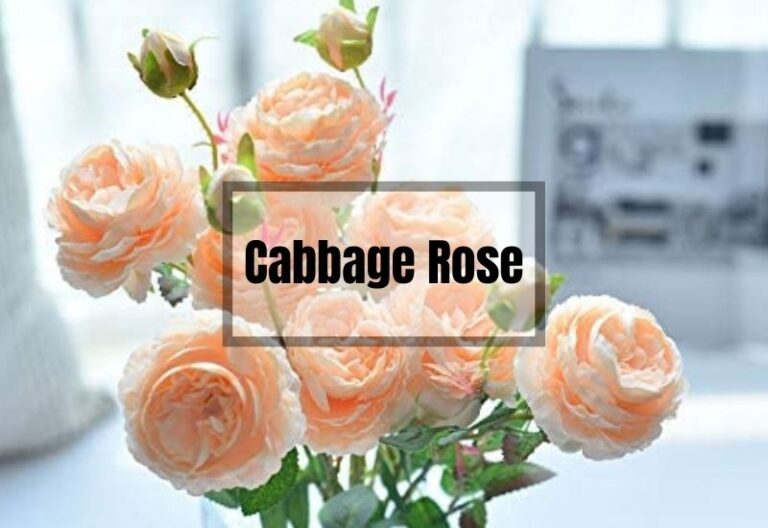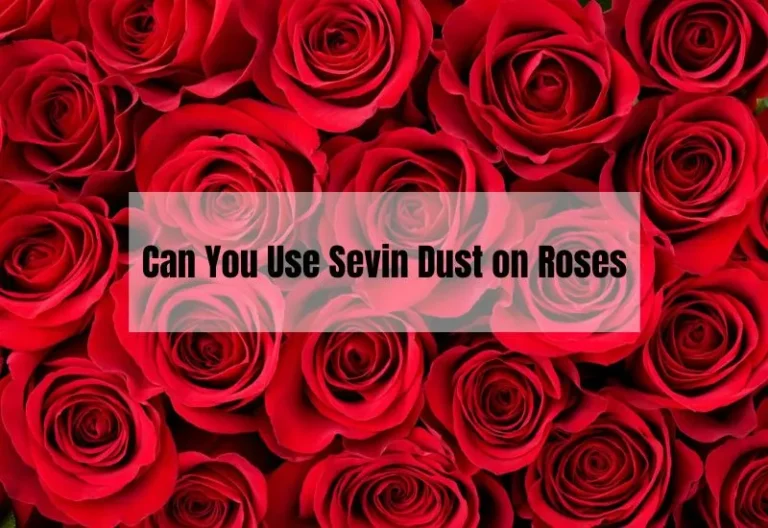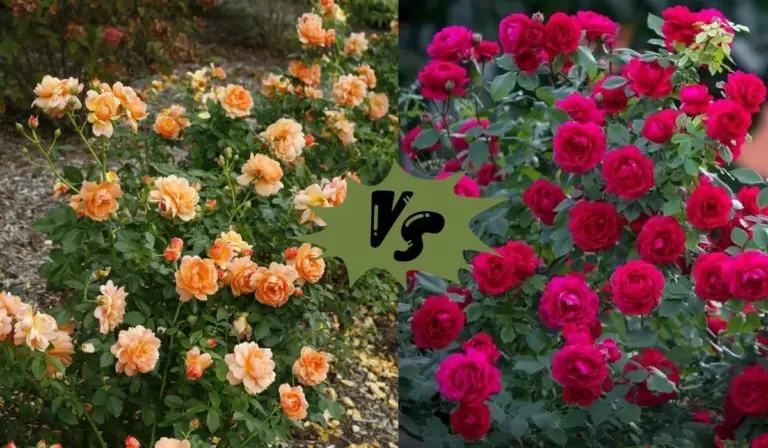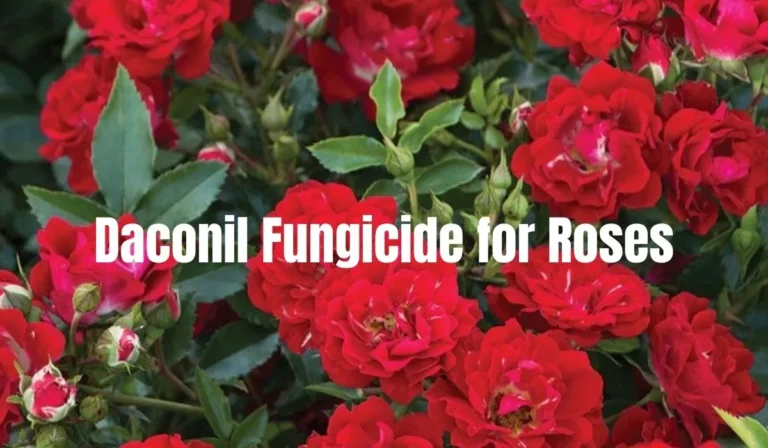Will Vinegar Kill Rose Bushes? A Professional Answer
From Louise: Passionate about gardening, I specialize in plant care and flower knowledge. I’m here to share my expertise and assist with your gardening queries. Feel free to ask any questions or seek advice on lawn care—I’ll respond within 24 hours!
Are you tired of dealing with rose bushes that are constantly plagued by diseases and pests? Are you looking for a natural solution that can help you get rid of them? If so, you might be interested in learning more about vinegar and how it can be used as a natural remedy.
In this article, we’ll explore the impact of vinegar on plants, alternative rose bush elimination methods, and precautions you should take when using vinegar.
Vinegar is an acidic solution that is made up of acetic acid and water. It has a pH of about 2.5 to 3.0, which makes it effective against weeds. When sprayed on plants, vinegar can cause leaf desiccation and death.
However, the effectiveness of vinegar on plants depends on its concentration and the type of plant.
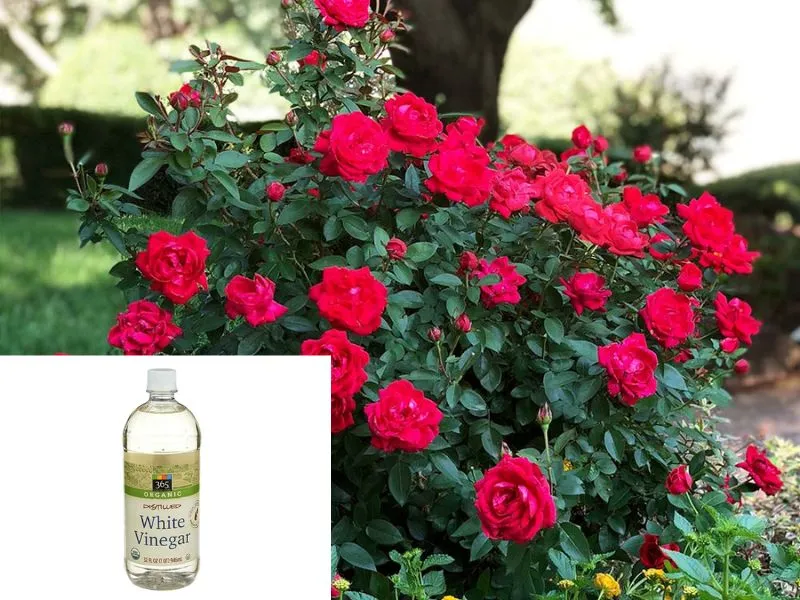
Will Vinegar Kill Rose Bushes
Yes, vinegar can harm your rose bushes if used undiluted. Undiluted vinegar is highly acidic and can burn the leaves and stems of your roses. To safely use vinegar for rose diseases, dilute it with three parts water to one part vinegar.
You can apply this mixture with a spray bottle or watering can. Keep in mind that vinegar doesn’t differentiate between plants—it will harm any it touches. Therefore, apply vinegar carefully around your roses to avoid affecting desired plants.
Understanding Vinegar and Its Effects
Vinegar is a versatile household item that can be used for various purposes, including gardening. When it comes to using vinegar on your rose bushes, it’s important to understand its effects and how it can impact your plants.
Vinegar is an acidic solution that can help control weeds and certain types of diseases that affect roses by lowering the pH of the soil, making it difficult for weeds and other unwanted plants to grow. Additionally, vinegar can help prevent the spread of diseases by killing off harmful bacteria and fungi.
However, it’s important to use vinegar correctly to avoid any potential damage to your rose bushes. Vinegar can be harmful to your rose bushes if used in high concentrations, so it’s important to dilute the vinegar with water before using it.
Avoid spraying vinegar directly on beneficial insects like bees and butterflies, as it can harm them. It’s also important to rinse your plants with water after applying vinegar to avoid any potential damage to the leaves and stems of your rose bushes.
Overall, vinegar can be a useful tool for controlling weeds and certain types of diseases that affect roses. However, it’s important to use it correctly and with caution. If used properly, vinegar can help your rose bushes thrive.
Related Posts:
The Science Behind Vinegar’s Impact on Plants
Acidity Levels
Vinegar is an acidic substance, and its acidity level can vary depending on the type of vinegar. White vinegar has an acidity level of 5%, while apple cider vinegar has an acidity level of 6%.
Acidity levels are measured on the pH scale, which ranges from 0 to 14. A pH of 7 is neutral, while anything below 7 is acidic, and anything above 7 is alkaline. When vinegar is sprayed on plants, its acidity can burn and damage the plant’s leaves, stems, and roots.
The acetic acid in vinegar can also lower the pH level of the soil, making it more acidic. This can be harmful to plants that prefer a neutral or alkaline soil environment. If used in excess or without proper dilution, vinegar can increase soil acidity levels too much and damage the roots of your roses. Additionally, it is not recommended to use vinegar during hot weather as this can cause leaf burn.
Effect on Soil
As mentioned earlier, vinegar can lower the pH level of the soil. This can be beneficial if you’re trying to grow plants that prefer acidic soil, such as blueberries or azaleas.
However, it can be harmful to plants that prefer neutral or alkaline soil, such as roses. Vinegar can also kill beneficial microorganisms in the soil, such as earthworms and bacteria, that help plants grow. This can lead to soil degradation and nutrient deficiencies, making it harder for plants to thrive.
It’s important to note that vinegar is not a selective herbicide, meaning it can kill both weeds and desirable plant life. Spraying vinegar on weeds can be an effective natural weed killer, but it’s essential to avoid spraying it on your rose bushes or other plants you want to keep.
Alternative Methods for Killing Rose Bushes
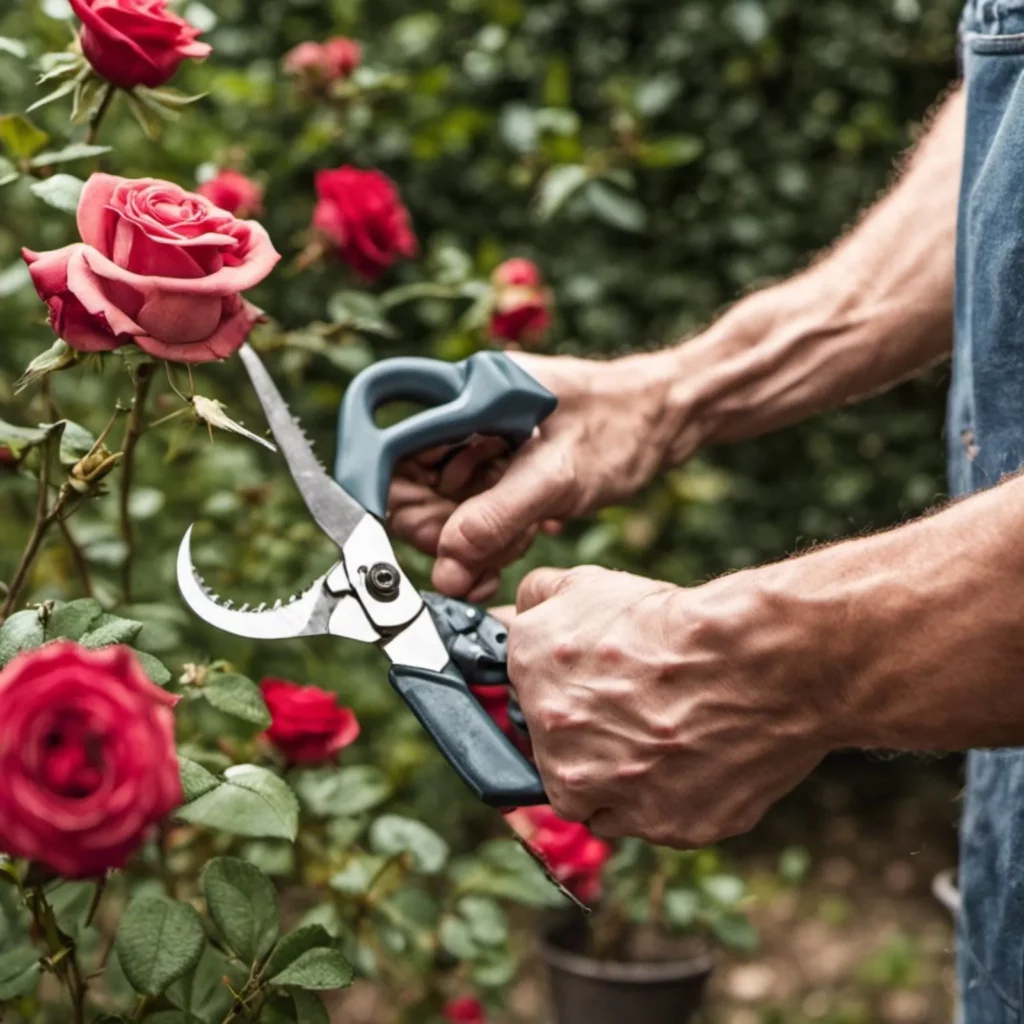
If you’re not a fan of using vinegar to kill your rose bushes, there are other options available. Here are two alternative methods you can try:
Using Herbicides
Herbicides are chemicals that are designed to kill plants. Glyphosate, sold under the brand name Roundup, is a popular herbicide for killing rose bushes. It’s a non-selective herbicide that will kill any plant it comes into contact with.
When using herbicides, it’s important to follow the instructions carefully and to wear protective clothing, including gloves and a mask, to avoid exposure to the chemicals.
To use glyphosate to kill a rose bush, simply spray it directly onto the foliage of the plant. The glyphosate will be absorbed through the leaves and will travel down to the roots, killing the plant. For more information on using Roundup to kill rose bushes, check out this article.
Physical Removal
If you don’t want to use chemicals to kill your rose bush, you can try physically removing it. This method involves digging up the entire plant, including the roots. It’s important to wear gloves and protective clothing when removing a rose bush, as the thorns can be sharp and can cause injury.
To remove a rose bush, start by cutting back the foliage and branches as much as possible. Then, use a shovel or a spade to dig around the base of the plant, being careful not to damage any nearby plants or roots.
Once you’ve dug down to the roots, use your hands or a garden fork to carefully loosen the soil around the roots. Then, lift the entire plant out of the ground, roots and all. If the rose bush is too large or too deeply rooted to remove by hand, you can use a stump grinder to grind down the stump and roots. This will kill the plant and prevent it from regrowing.
For more information on maintaining a beautiful garden while killing grass without harming roses, check out this article.
Precautions When Using Vinegar
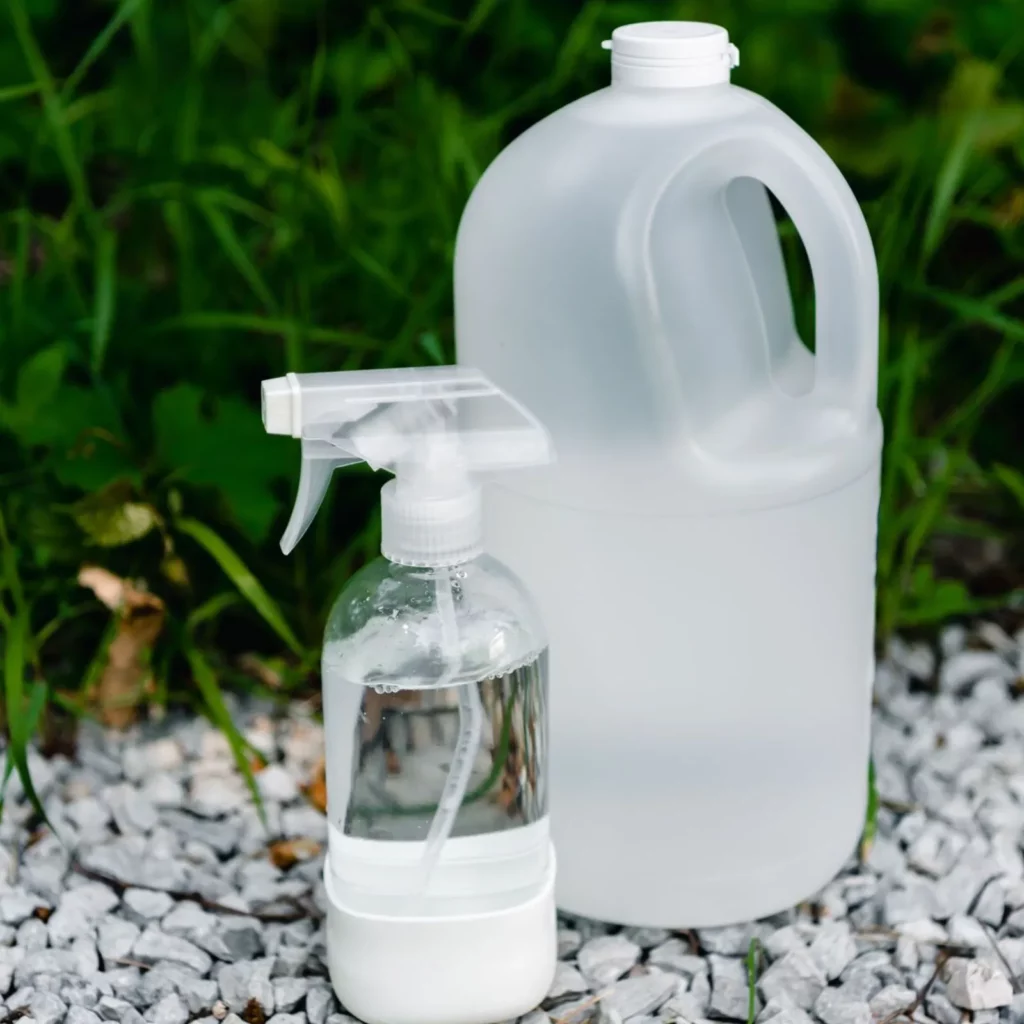
When using vinegar to combat rose diseases, it is essential to take proper precautions to avoid damaging your plants. Here are some safety measures you should follow when using vinegar:
Protecting Beneficial Plants
While vinegar can be a useful natural remedy for killing weeds and combating rose diseases, it can also harm or kill other plants if not used correctly. To protect your beneficial plants, you should:
- Cover nearby plants with a plastic sheet or cardboard to prevent overspray.
- Apply vinegar directly to the base of the rose plant or use a spray bottle to apply it directly to the leaves.
- Avoid using vinegar on windy days to prevent overspray.
Safety Measures
Vinegar is a safe and natural remedy for combating rose diseases, but it can be harmful if not used correctly. Here are some safety measures you should follow when using vinegar:
- Wear protective clothing, gloves, and goggles to avoid contact with your skin and eyes.
- Keep vinegar away from children and pets to prevent accidental ingestion.
- Do not mix vinegar with other chemicals or herbicides as it can cause a dangerous chemical reaction.
- Store vinegar in a cool, dry place away from direct sunlight.
By following these precautions, you can safely and effectively use vinegar to combat rose diseases without harming your plants or yourself. Remember to always read and follow the recommended application methods to avoid damaging your plants.
Related Posts:
Frequently Asked Questions (FAQs)
Can vinegar be used to kill aphids on roses?
Yes, vinegar can be used to kill aphids on roses. Mix one part vinegar with three parts water and add a few drops of dish soap. Spray the solution on the affected areas of your roses. This solution will kill the aphids and other pests that are harming your roses.
What is a homemade spray for roses to kill bugs?
A homemade spray for roses to kill bugs is a mixture of water, dish soap, and neem oil. Mix one tablespoon of dish soap, one tablespoon of neem oil, and one gallon of water.
Spray the mixture on your roses to get rid of bugs like aphids, spider mites, and whiteflies.
Is it safe to spray vinegar on rose bushes?
Yes, it is safe to spray vinegar on rose bushes as long as it is diluted properly. Mix one part vinegar with three parts water and add a few drops of dish soap.
Spray the solution on the affected areas of your roses. This solution will help kill pests and keep your roses healthy.
What is the best way to get rid of aphids on roses?
The best way to get rid of aphids on roses is to use a mixture of water, dish soap, and neem oil. Mix one tablespoon of dish soap, one tablespoon of neem oil, and one gallon of water. Spray the mixture on your roses to get rid of the aphids.
How do I protect my rose bushes from pests?
To protect your rose bushes from pests, you can use a variety of methods. One way is to use natural remedies like neem oil, vinegar, and dish soap.
Another way is to keep your rose bushes healthy by watering them regularly, fertilizing them, and pruning them. You can also use physical barriers like netting or row covers to keep pests away.
What are some natural remedies for rose bush pests?
Some natural remedies for rose bush pests include neem oil, vinegar, and dish soap. Neem oil is a natural insecticide that is safe for humans and pets. Vinegar can be used to kill pests like aphids and spider mites. Dish soap can be used to suffocate pests like whiteflies and mealybugs.
Conclusion
In summary, vinegar can be an effective natural remedy for weed control and rose disease management, but it should be used with caution. To control rose diseases, use a 5% to 6% acidity vinegar solution, such as white vinegar or apple cider vinegar, mixed with water.
For removing stubborn rose bushes, options include herbicides, mechanical methods like goats or digging, or root extraction. Keep in mind that removing a rose bush can be demanding, especially if it is overgrown.
While rose bushes add beauty and fragrance to gardens, they require dedicated care, including pruning and maintenance.


